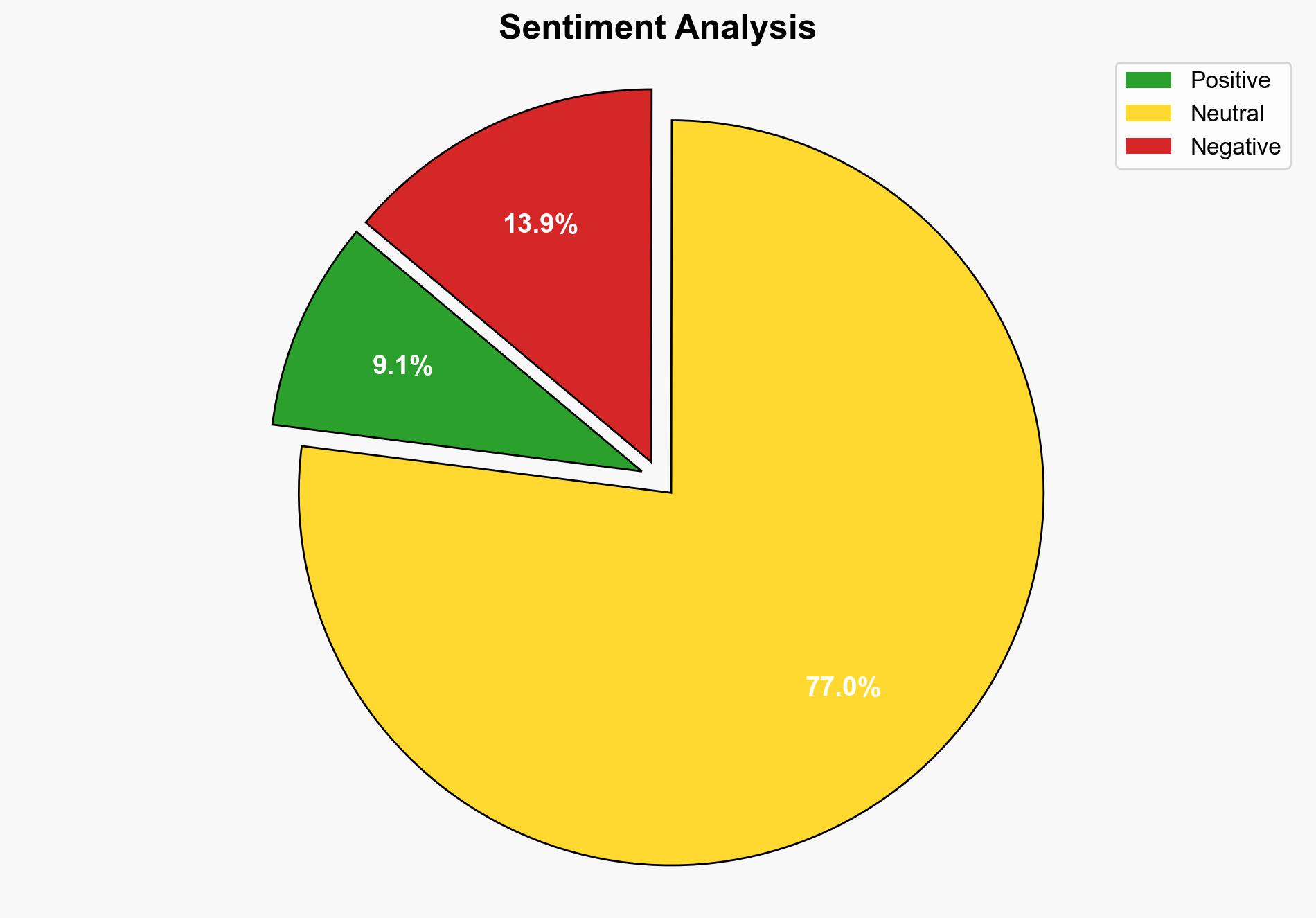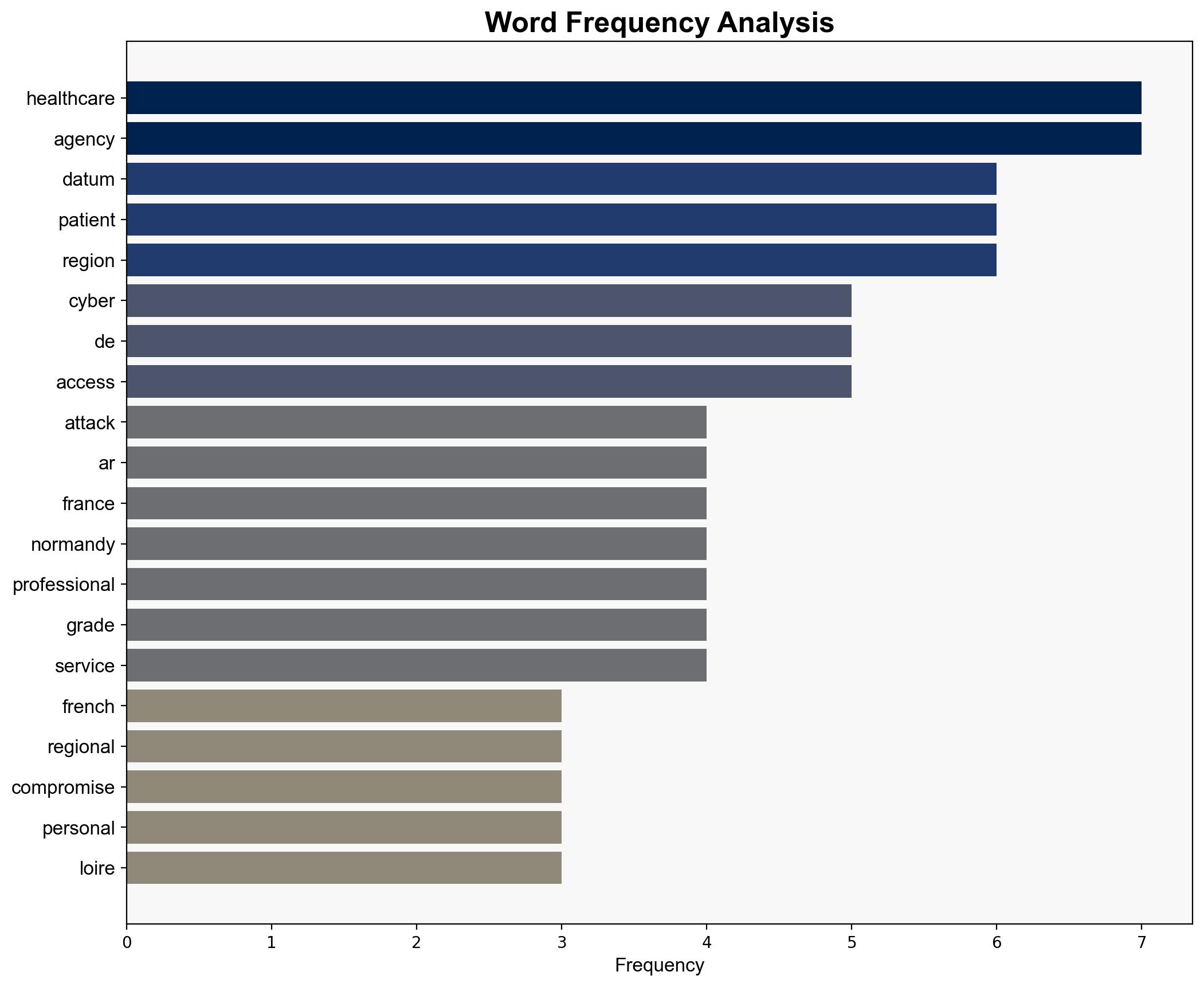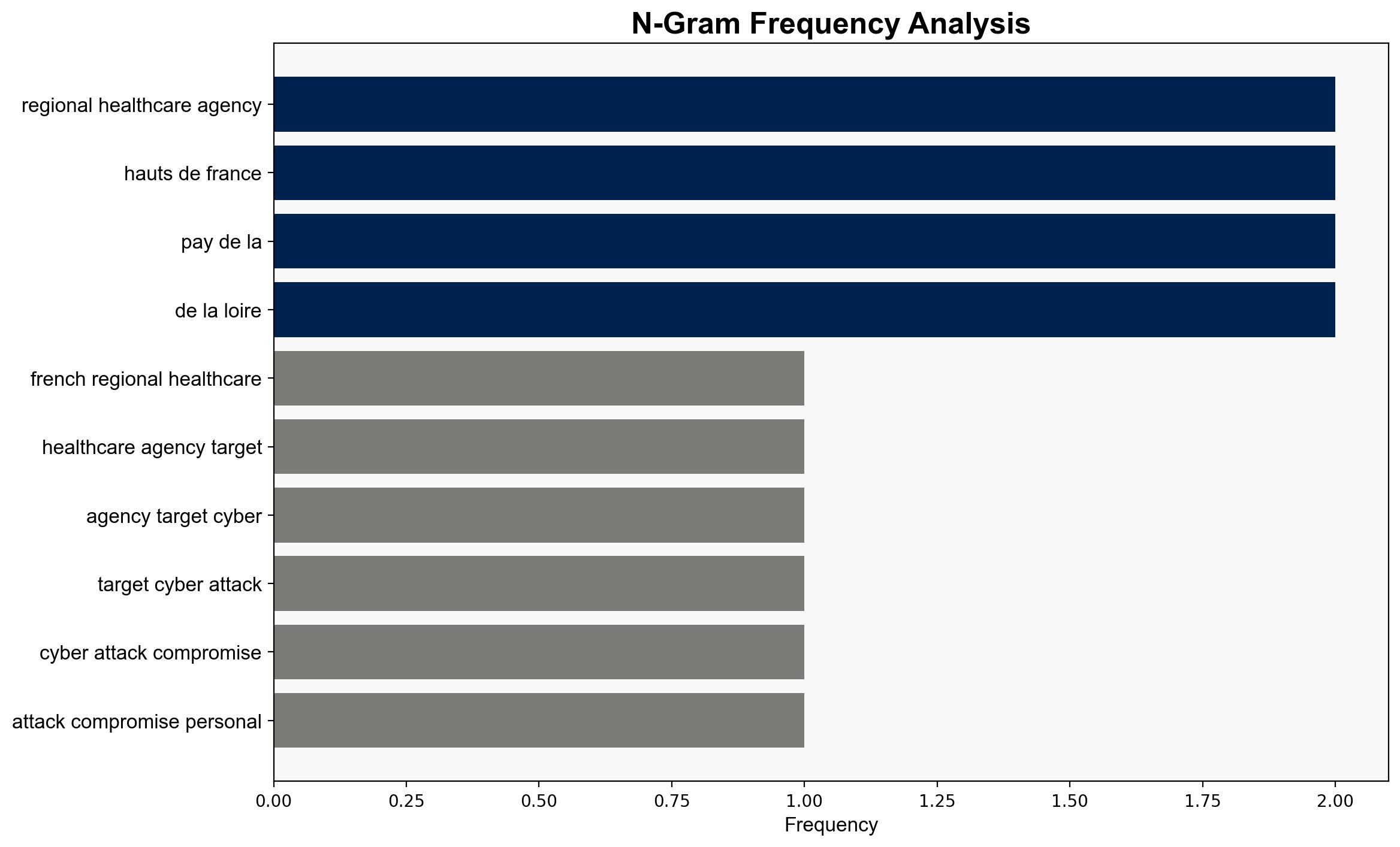France Three Regional Healthcare Agencies Targeted by Cyber-Attacks – Infosecurity Magazine
Published on: 2025-09-11
Intelligence Report: France Three Regional Healthcare Agencies Targeted by Cyber-Attacks – Infosecurity Magazine
1. BLUF (Bottom Line Up Front)
The most supported hypothesis is that the cyber-attacks on the French regional healthcare agencies are primarily motivated by criminal intent to steal and exploit personal data for financial gain. The confidence level in this assessment is moderate due to the lack of direct attribution to specific actors. Recommended actions include enhancing cybersecurity measures across healthcare systems and increasing awareness among healthcare professionals about phishing threats.
2. Competing Hypotheses
1. **Criminal Motivation Hypothesis**: The attacks are driven by cybercriminals seeking to steal personally identifiable information (PII) for financial exploitation through identity theft or sale on the dark web.
2. **State-Sponsored Espionage Hypothesis**: The attacks are part of a broader state-sponsored campaign aimed at gathering intelligence on France’s healthcare infrastructure, potentially for future strategic advantage or disruption.
Using the Analysis of Competing Hypotheses (ACH) 2.0, the Criminal Motivation Hypothesis is better supported due to the nature of the data targeted (PII) and the use of phishing, a common tactic in financially motivated cybercrime. The lack of evidence pointing to strategic geopolitical objectives weakens the State-Sponsored Espionage Hypothesis.
3. Key Assumptions and Red Flags
– **Assumptions**: It is assumed that the primary goal of the attackers is financial gain, based on the targeting of PII. Another assumption is that healthcare agencies have not been adequately prepared for sophisticated cyber threats.
– **Red Flags**: The absence of direct attribution to specific actors or groups is a significant gap. Additionally, the potential underreporting of similar incidents could skew threat assessment.
4. Implications and Strategic Risks
The attacks highlight vulnerabilities in the healthcare sector’s cybersecurity infrastructure, posing risks of data breaches and operational disruptions. There is a potential for cascading effects if attackers leverage stolen data for further attacks or fraud. Geopolitically, if state-sponsored, this could indicate a shift in targeting strategies towards critical infrastructure.
5. Recommendations and Outlook
- Enhance cybersecurity protocols across healthcare systems, including regular audits and updates to security software.
- Conduct training sessions for healthcare professionals to recognize and respond to phishing attempts.
- Establish a rapid response team to address future cyber incidents promptly.
- Scenario Projections:
- **Best Case**: Improved defenses deter future attacks, and no further breaches occur.
- **Worst Case**: Continued attacks lead to significant data breaches and operational disruptions.
- **Most Likely**: Sporadic attacks continue, but with reduced impact due to improved defenses.
6. Key Individuals and Entities
– Damien Bancal, cybersecurity expert and author of the cyber website Zataz.
– French Data Protection Authority (CNIL), involved in the investigation and response.
7. Thematic Tags
national security threats, cybersecurity, counter-terrorism, regional focus




